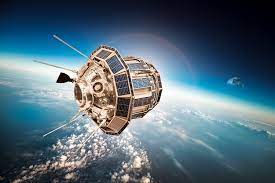The future of space exploration holds immense promise, with quantum computing emerging as a transformative technology that could revolutionize the way we explore and understand the cosmos. Quantum computing offers unprecedented computational power and capabilities that can accelerate scientific discovery, enable breakthroughs in space exploration, and unlock new frontiers of knowledge beyond our solar system. Here’s a look at the potential impact of quantum computing on space exploration:
1. Advanced Data Processing and Analysis
Quantum computing has the potential to revolutionize data processing and analysis in space exploration missions. Traditional computing systems struggle to handle the massive volumes of data collected from space telescopes, satellites, and spacecraft, leading to processing bottlenecks and delays in data analysis. Quantum computers, with their parallel processing capabilities and exponential speedup, can analyze vast datasets more efficiently, extract meaningful insights, and accelerate scientific discoveries in astronomy, astrophysics, and planetary science.
2. Optimization of Space Mission Planning
Quantum computing can optimize space mission planning and trajectory optimization, enabling more efficient and cost-effective exploration of celestial bodies within our solar system and beyond. Quantum algorithms can solve complex optimization problems, such as trajectory planning, orbital mechanics, and resource allocation, in significantly less time than classical algorithms. By optimizing mission trajectories and resource utilization, quantum computing can enable spacecraft to reach their destinations faster, conserve fuel, and achieve scientific objectives with greater precision.
3. Simulation of Quantum Phenomena in Space
Quantum computing enables the simulation of quantum phenomena and processes that occur in extreme environments, such as black holes, neutron stars, and distant galaxies. Quantum algorithms can model quantum entanglement, superposition, and tunneling effects, providing insights into the behavior of matter and energy in the universe. By simulating quantum phenomena in space, scientists can better understand the fundamental laws of physics, explore exotic astrophysical phenomena, and unravel the mysteries of the cosmos.
4. Secure Communication and Cryptography
Quantum computing offers the potential for secure communication and cryptography in space exploration missions. Quantum communication protocols, such as quantum key distribution (QKD), leverage the principles of quantum mechanics to transmit cryptographic keys securely over long distances. Quantum-resistant encryption algorithms can protect sensitive data and communications from interception and eavesdropping by quantum computers. Secure communication technologies based on quantum principles could safeguard space missions from cyber threats and ensure the integrity and confidentiality of data transmitted between spacecraft and ground stations.
5. Real-time Decision Making and Autonomous Systems
Quantum computing enables real-time decision making and autonomous systems in space exploration, enhancing the autonomy and responsiveness of spacecraft and robotic missions. Quantum algorithms can process sensor data, analyze environmental conditions, and make split-second decisions without human intervention, enabling autonomous navigation, hazard avoidance, and adaptive control in dynamic space environments. By leveraging quantum computing for real-time decision making, spacecraft can respond quickly to unforeseen events, adapt to changing conditions, and maximize mission success.
6. Quantum Sensing and Metrology
Quantum computing enables advanced sensing and metrology techniques that can enhance scientific instrumentation and measurements in space exploration missions. Quantum sensors, such as atomic clocks, magnetometers, and gravimeters, offer unprecedented precision and sensitivity, enabling high-precision navigation, mapping, and scientific measurements in space. Quantum metrology techniques can improve the accuracy of distance measurements, gravitational wave detection, and mapping of cosmic structures, enhancing our understanding of the universe and enabling new discoveries in astrophysics and cosmology.
Conclusion
Quantum computing holds tremendous potential to revolutionize space exploration and unlock new frontiers of knowledge beyond our solar system. From advanced data processing and analysis to optimization of space mission planning, simulation of quantum phenomena, secure communication and cryptography, real-time decision making, autonomous systems, and quantum sensing and metrology, quantum computing offers a wide range of applications that can enhance scientific discovery, enable breakthroughs in space exploration, and expand our understanding of the cosmos. As quantum computing continues to evolve, its integration into space exploration missions promises to accelerate scientific progress, inspire future generations of explorers, and propel humanity towards new horizons in the exploration of the universe.
